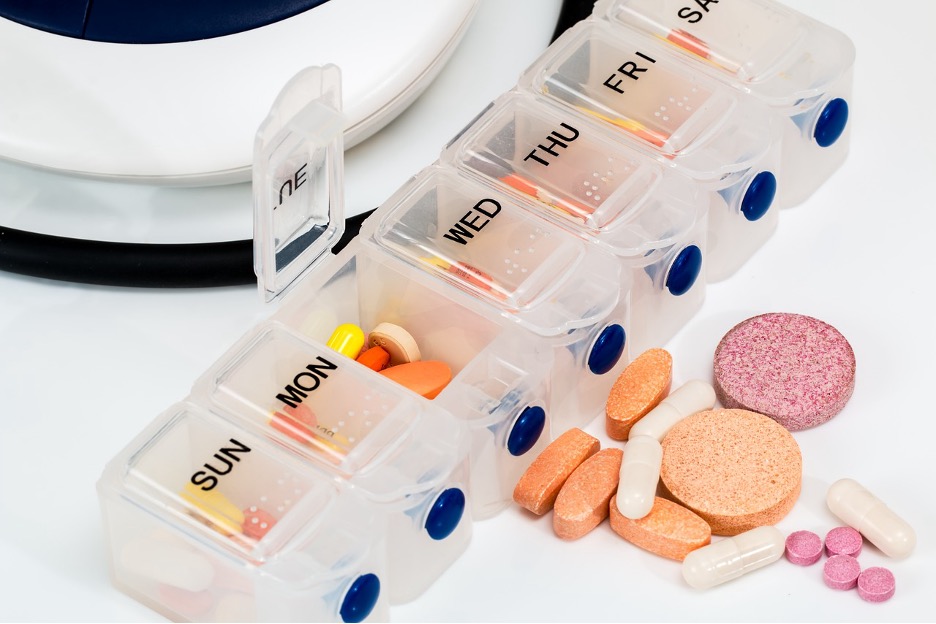
17 Jul Thyroid Health: Should you take Thyroid-Specific supplements?
The thyroid gland helps regulate metabolism, energy levels, and overall hormonal balance. Thus, maintaining optimal thyroid health is essential for overall well-being, and that’s why thyroid-specific supplements have gained popularity as potential aids in supporting thyroid function.
This article explores the benefits and risks of using these supplements, providing an informed perspective on whether they are necessary or beneficial for individuals with thyroid concerns. Read on!
The Thyroid Gland: Symptoms of Thyroid Imbalance
The thyroid gland, located in the neck, is crucial for regulating metabolism, energy production, and hormonal balance. It releases hormones like thyroxine (T4) and triiodothyronine (T3) that influence various bodily functions. When the thyroid doesn’t function properly, it can lead to disorders such as hypothyroidism (underactive thyroid) and hyperthyroidism (overactive thyroid).
When you suffer from hypothyroidism, you may experience fatigue, weight gain, and depression, while hyperthyroidism leads to weight loss, anxiety, and rapid heartbeat.
Medications are often the first line of treatment. For hypothyroidism, you may get a prescription to replace the deficient thyroid hormone. For hyperthyroidism, antithyroid drugs help you reduce hormone production.
Lifestyle and dietary changes also play a significant role. Thus, you may get advice on managing stress, regular exercise, and avoiding substances that can interfere with thyroid health, like excessive soy and cruciferous vegetables, can be beneficial.
In addition to these changes, you may also use ways to replenish essential nutrients that support thyroid function. For instance, Standard Process Thytrophin PMG® may be good for supporting healthy thyroid function. It contains a proprietary blend of nucleotides and peptides derived from bovine thyroid, designed to nourish the thyroid gland and promote health.
Please remember that thyroid supplements are not FDA tested or approved. Please consult with your health care provider and be sure to remind the provider that you are taking any supplement. Supplements may also contain other ingredients which may or may not cause side effects.
The main concern for many is what supplements to use and why.
Considerations Before Taking Thyroid Supplements
Who Should Take Thyroid Supplements
Individuals who might consider taking thyroid supplements fall into several categories. For example, a person diagnosed with thyroid disorders like hypothyroidism or hyperthyroidism may benefit from iodine or selenium supplements to aid in hormone production under the guidance of their healthcare provider.
Secondly, people with nutrient deficiencies that affect thyroid function, such as iodine, selenium, or vitamin D, might need supplementation to correct these deficiencies and support overall thyroid health.
Further, individuals experiencing symptoms associated with thyroid imbalances, such as fatigue, weight changes, or mood disturbances, might consider supplements to support thyroid health. Those at risk of thyroid disorders, including individuals with a family history of thyroid problems or autoimmune diseases, women in perimenopause or menopause, and seniors, might also consider supplements.
Possible Side Effects of Common Thyroid Supplements
Thyroid supplements, while beneficial for many, can also pose certain risks and side effects. Iodine, for instance, can lead to thyroid dysfunction if taken in excessive amounts, potentially causing hyperthyroidism or hypothyroidism. Selenium can be toxic at high doses, leading to symptoms like gastrointestinal distress, hair loss, and nerve damage. Too much (or too little) thyroid hormone can cause cardiac side effects.
On top of that, Vitamin D, if over-supplemented, can result in hypercalcemia, causing nausea, weakness, and kidney problems.
Interactions with Thyroid Medications and Other Supplements
Thyroid supplements can interact with prescribed thyroid medications, affecting their efficacy and safety. For example, iodine supplements can interfere with synthetic thyroid hormone medications and alter their absorption and effectiveness. Selenium and zinc can also impact the efficacy of thyroid medications if not appropriately balanced.
Additionally, certain supplements can interact with each other. High doses of calcium or iron supplements, for instance, can interfere with the absorption of levothyroxine. Therefore, it is crucial to manage the timing and dosages of these supplements to avoid adverse interactions.
Medical Guidance
Proper dosage and medical guidance are critical when taking thyroid supplements to avoid potential risks and ensure their effectiveness. Healthcare professionals can determine the appropriate dosage based on individual health needs, existing thyroid function, and nutrient deficiencies.
In addition, regular monitoring through blood tests can help assess thyroid hormone levels and adjust supplement dosages accordingly. Medical guidance ensures you use supplements safely and effectively, minimizing the risk of side effects and interactions with other medications.
Alternatives to Thyroid Health
Dietary adjustments can be a powerful alternative to supplements for supporting thyroid health. For instance, foods high in iodine, such as seaweed, fish, dairy products, and eggs, can support thyroid hormone production.
Selenium-rich foods like Brazil nuts, sunflower seeds, and mushrooms provide antioxidant protection and aid in hormone conversion. Additionally, ensuring sufficient zinc intake through meats, shellfish, and legumes can help maintain thyroid hormone levels.
Another area to work on is exercise. Physical activity helps regulate metabolism, which thyroid disorders affect often. Hence, combining cardiovascular exercise, strength training, and flexibility exercises can boost energy levels, enhance mood, and support overall metabolic health. Exercise also helps manage weight, a common concern for those with thyroid imbalances, and can improve overall well-being.
Environmental factors also play a significant role in thyroid health. Reducing exposure to endocrine-disrupting chemicals in some plastics, pesticides, and household products can support thyroid function. These are some of the things your doctor can prescribe alongside supplements.
Final Thoughts
The decision to take thyroid-specific supplements depends on your health needs and circumstances. Supplements like iodine, selenium, vitamin D, and others can offer significant benefits, particularly for those with diagnosed thyroid disorders, nutrient deficiencies, or symptoms of thyroid imbalance. However, they also come with potential risks and side effects, especially when you take them without proper medical guidance.
Thus, consult a healthcare provider before starting any supplement regimen. They can assess your thyroid function, identify deficiencies, and recommend the appropriate supplements and dosages tailored to your needs. In many cases, a balanced diet, regular exercise, stress management, and environmental adjustments can also support thyroid health effectively.
The information on MedicalResearch.com is provided for educational purposes only, and is in no way intended to diagnose, endorse, cure, or treat any medical or other condition.
Some links may be sponsored. Products, services and providers are not endorsed.
Always seek the advice of your physician or other qualified health and ask your doctor any questions you may have regarding a medical condition. In addition to all other limitations and disclaimers in this agreement, service provider and its third party providers disclaim any liability or loss in connection with the content provided on this website.
Last Updated on July 24, 2024 by Marie Benz MD FAAD

